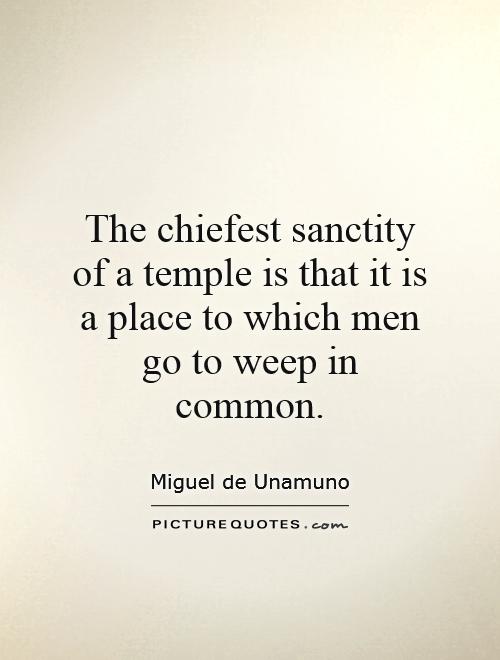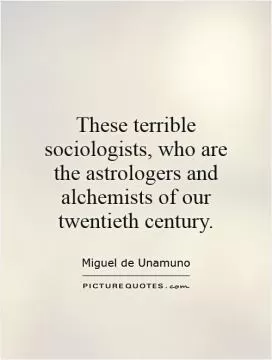The chiefest sanctity of a temple is that it is a place to which men go to weep in common

The chiefest sanctity of a temple is that it is a place to which men go to weep in common
Miguel de Unamuno, a Spanish philosopher and writer, believed in the power of human emotion and the importance of shared experiences in fostering a sense of community and connection. In his writings, Unamuno often explored the complexities of human nature and the search for meaning in a world filled with uncertainty and suffering. One of his most famous quotes, "The chiefest sanctity of a temple is that it is a place to which men go to weep in common," speaks to the idea that true sanctity is found in the shared experience of sorrow and the comfort that can be found in coming together in times of need.Unamuno believed that the act of weeping in common, of sharing our pain and vulnerability with others, is a powerful and transformative experience. In a world that often values strength and stoicism, Unamuno saw the act of weeping as a way to connect with our shared humanity and to find solace in the presence of others. He believed that in our moments of deepest sorrow, we are most in need of the support and understanding of those around us.
For Unamuno, the temple was not just a physical place of worship, but a symbol of the human need for connection and community. In coming together to weep in common, we are reminded of our shared humanity and our interconnectedness with one another. In our moments of grief and despair, the temple becomes a sacred space where we can find comfort and solace in the presence of others who understand our pain.
Unamuno's belief in the power of shared sorrow and the importance of coming together in times of need is a timeless reminder of the value of human connection and empathy. In a world that often feels divided and disconnected, Unamuno's words serve as a powerful reminder of the healing power of community and the sanctity of shared emotion.












 Friendship Quotes
Friendship Quotes Love Quotes
Love Quotes Life Quotes
Life Quotes Funny Quotes
Funny Quotes Motivational Quotes
Motivational Quotes Inspirational Quotes
Inspirational Quotes